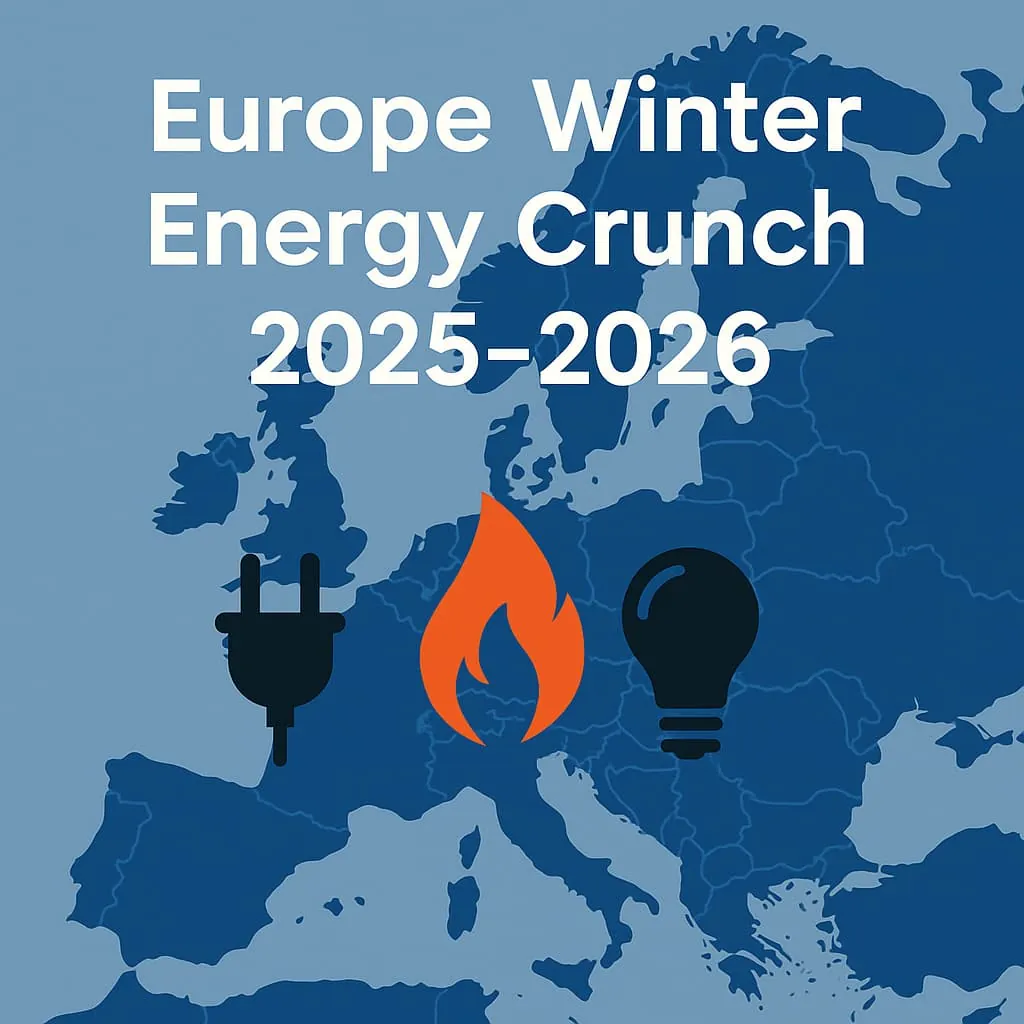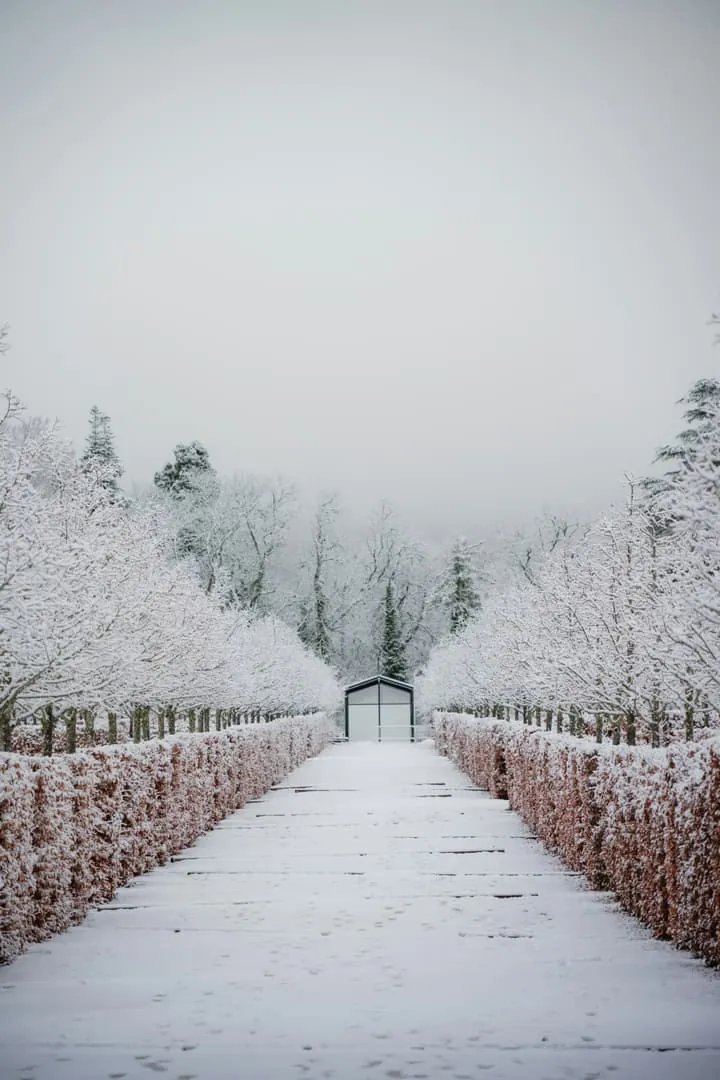
Europe’s Winter Energy Crunch 2025-2026: What Households Must Do Now to Stay Efficient and Save Money
As temperatures drop and winter 2025-2026 arrives, Europe faces yet another phase of energy tension. Gas prices remain unstable, electricity demand is rising, and millions of households are looking for ways to stay warm without breaking the bank.
1. Why winter 2025-2026 is under energy pressure
Several overlapping factors put this winter under close watch for energy planners and households alike:
- gas prices that remain volatile on global markets;
- temporary drops in hydropower production in parts of Southern Europe;
- delays in large-scale renovation programmes;
- more frequent cold spells that increase heating demand.
For households, this translates into a risk of higher bills if nothing changes in the way energy is used at home. The good news: many of the most effective actions are simple and affordable.
2. Are households ready? Not yet.
Across the EU, around 38% of homes are still poorly insulated. Old windows, uninsulated attics and thin walls mean that a large share of the heat you pay for literally escapes outside.
This reality aligns with what many site owners see in their analytics and Search Console: a surge in queries such as:
- “heat pump France news”;
- “subsidy heat pump 2025”;
- “save on winter heating bills”.
People are clearly searching for concrete, trustworthy guidance on where to start: quick wins, affordable upgrades and clear information about subsidies.
3. The most efficient heating options for winter 2025-2026
There is no single universal solution, but some options consistently perform better than others in terms of comfort and long-term savings.
- High-efficiency heat pumps: Still the most attractive option when the building is reasonably insulated. They deliver large energy savings compared with old gas or oil boilers and are at the centre of national support schemes. See Heat pump subsidies France 2025 for a detailed overview.
- Modern pellet stoves: An interesting alternative in some regions, especially for living rooms in smaller or medium-sized homes. However, results depend heavily on pellet prices and local air quality rules.
- Smart thermostats and connected valves: These do not produce heat, but they can reduce wastage by 10–20% by better targeting heating to occupied rooms and real schedules. Our guide Smart thermostats 2025 in France explains how.
- Inertia radiators: For small, poorly insulated apartments where a full renovation is not yet realistic, high-quality electric inertia radiators can offer better comfort and a more stable temperature than old convectors.
To compare these approaches with other eco-heating strategies, revisit Electric heating vs heat pumps in 2025 and Eco heating 2026: the sustainable trends to watch.
4. Rapid insulation: what can be done in 48 hours
Deep renovation takes time, but there is a lot you can do in a single weekend to reduce heat loss:
- insulate hot water pipes in unheated spaces;
- add thermal curtains to the coldest windows;
- fit window seals to reduce draughts;
- install door draught excluders at the bottom of entrance doors;
- insulate unused attic space with simple roll or blown-in insulation where accessible.
These relatively low-cost measures can cut heat loss by up to around 20% in the most exposed homes, while also improving comfort by removing cold air currents near windows and doors. For a more structural upgrade, see our guide on green insulation and eco-friendly materials.
5. How to cut electricity bills this winter
Electricity is increasingly used for heating, hot water, lighting and appliances. A few levers have a particularly strong impact:
- lowering the average indoor temperature by 1 °C typically reduces heating costs by around 7%;
- switching devices fully off instead of leaving them on standby can save around 5% of annual electricity use;
- using smart thermostats and programmable controls often reduces heating consumption by 10–15%;
- avoiding high-wattage fan heaters for long periods prevents sudden spikes in your bill.
To go further, combine these habits with the tips from Save on heating this winter and How to cut your electricity bill without losing comfort.
6. Subsidies still available before the end of 2025
In many European countries, support mechanisms remain open at least until the end of 2025. Depending on where you live, you may still access:
- grants for insulation (attics, walls, floors, windows);
- bonuses for clean heating solutions, especially heat pumps;
- incentives for installing smart thermostats or connected valves;
- support to replace very old electric radiators or oil boilers.
In France, for example, combinations of MaPrimeRénov', energy savings certificates and green loans are still active. For the financing perspective, see France’s green home loans 2025: how to finance your eco-renovation. Always check your national government and local authorities’ websites for up-to-date conditions.
7. Internal links to explore for winter 2025-2026
To build a coherent action plan for this winter and beyond, you can combine several resources from the blog:
- Save on heating this winter for immediate behaviour changes;
- Smart thermostats 2025 in France for control and automation;
- Electric heating vs heat pumps in 2025 to compare main systems;
- Winter 2025: stay warm, waste less for daily comfort strategies;
- The Great Heat Pump Shift: why 2026 will be the year Europe goes all-in on clean heating to understand how this winter fits into the larger 2026 transition.
Frequently Asked Questions
How can I save money this month?
Lowering your heating set point by 1 °C, sealing draughts, adding quick insulation (pipes, attic, curtains) and using smart thermostats can reduce your bill as soon as the next cycle. Prioritise rooms you actually occupy and avoid heating unused spaces.
Are heating subsidies still available?
Yes. In most EU countries, subsidies for insulation and clean heating remain available at least until the end of 2025, with some schemes already extended into 2026. Check your national energy agency or renovation portal to confirm the exact deadlines and eligibility rules.
Conclusion: Winter 2025-2026 can be far less expensive with smart decisions and simple home improvements. By combining rapid insulation, efficient heating and available subsidies, households can protect both comfort and budgets.
About the author:
Alexandre Dubois is a French sustainability enthusiast sharing practical tips for greener living. With years of experience in energy efficiency consulting, he helps households reduce their environmental impact without sacrificing comfort. Contact: info@greendailyfix.com
Related posts

The Winter Home Problem Nobody Talks About: Humidity, Mould, and the Air You’re Breathing
Every winter, we seal our homes to keep warmth in — and trap something else inside. Humidity rises, air stagnates, and invisible pollutants accumulate. In 2026, indoor air quality is becoming one of the most overlooked health issues in European homes.

From Optimisation to Protection: Why European Homes Are Redefining Energy Strategy in 2026
For years, energy advice focused on optimisation: better efficiency, higher performance, maximum savings. In 2026, European households are quietly changing priorities. The new goal is not perfection - it is protection.

The Illusion of Energy Stability: Why Europe's 2026 Calm Is Costing Households More Than They Think
For the first time in years, Europe entered winter without an energy shock. No dramatic price surge. No emergency headlines. And yet, something more dangerous is happening quietly: households are mistaking stability for safety.

Europe’s Winter Wake-Up Call: The Hidden Energy Decisions Millions of Homes Will Regret Delaying in 2026
This winter, Europe didn’t freeze — but something else happened quietly. Millions of households realized that energy problems no longer arrive as shocks. They arrive as slow, expensive regrets. Winter 2026 isn’t about panic. It’s about the cost of waiting.